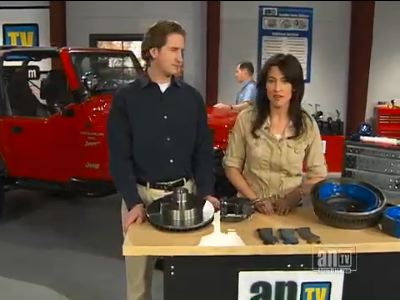Today’s vehicles have some pretty amazing technology in them, including a computerized braking system we all pretty much take for granted these days. Antilock brake systems (ABS) have been around for years but they help drivers stop in much shorter distances reliably than ever before. When you see your ABS warning light come on, it’s important to find out what’s causing the problem. It’s a safety issue.
Often the problem when the ABS light comes on is a faulty wheel speed sensor. (In some cases the traction control light will also come on, perhaps because of a non-working wheel speed sensor.) Your vehicle uses the speed sensors to measure the rotational speed at each wheel. That sensor sends the speed data to a computer that can then adjust braking power and prevent your wheels from locking up.
If any of the wheel speed sensors isn’t working right, the ABS warning light will go on and the vehicle’s computer will turn off the antilock brake system. You’ll still have working brakes, but you will lose the functionality of that computerized system.
When your vehicle warns you the ABS has a non-working sensor, you can have a technician check to see what’s going on. It could be one of the sensors is dirty and a cleaning will solve the problem. But it also could be that one or more sensors needs to be replaced.
A technician will use computerized diagnostic equipment to determine what and where the problem is, replace any bad parts and then check to make sure the system is fully operational.
Antilock brakes and traction control are significant technologies that help prevent your vehicle from slipping on less-than-perfect road surfaces, especially useful during wintery weather. Make sure they’re helping you drive the way they designed to.
Autotronics of St. Peter
111 Jefferson Avenue
St. Peter, MN 56082
507.934.9290
http://autotronicsstpeter.com

